Impermanence Quotes
Most popular impermanence quotes
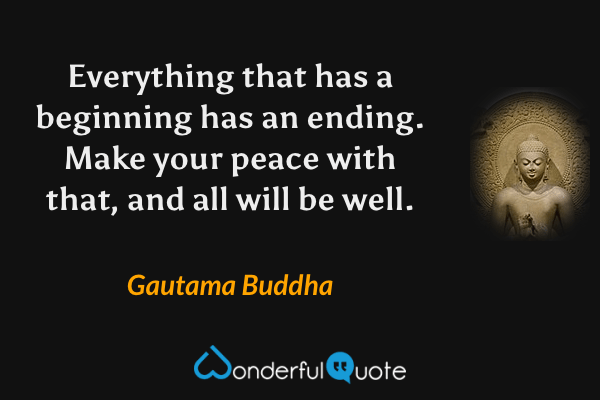
Everything that has a beginning has an ending. Make your peace with that, and all will be well.
You never conquer a mountain. You stand on the summit a few moments; then the wind blows your footprints away.
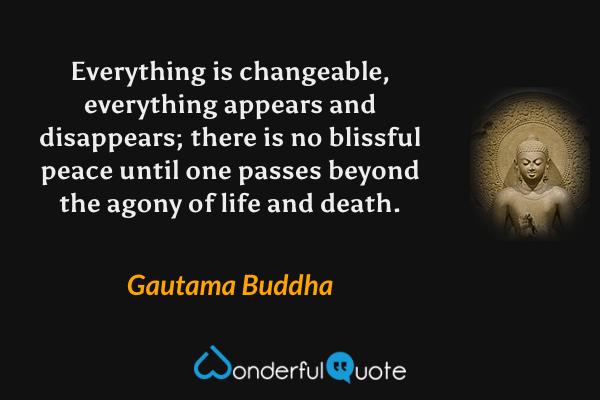
Everything is changeable, everything appears and disappears; there is no blissful peace until one passes beyond the agony of life and death.
Time goes, you say? Ah, no! Alas, Time stays, we go.
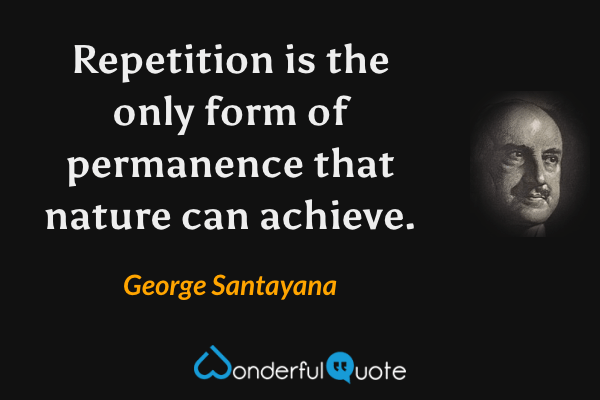
Repetition is the only form of permanence that nature can achieve.
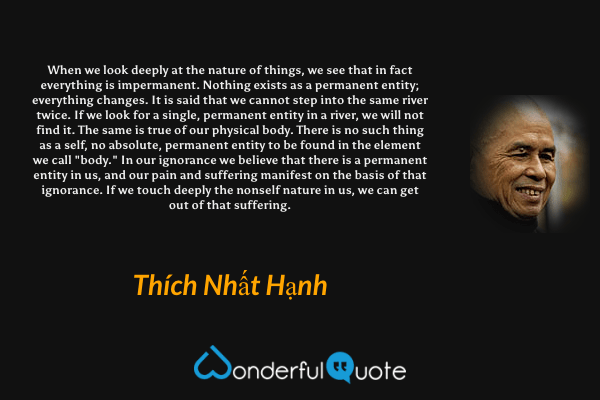
When we look deeply at the nature of things, we see that in fact everything is impermanent. Nothing exists as a permanent entity; everything changes. It is said that we cannot step into the same river twice. If we look for a single, permanent entity in a river, we will not find it. The same is true of our physical body. There is no such thing as a self, no absolute, permanent entity to be found in the element we call "body." In our ignorance we believe that there is a permanent entity in us, and our pain and suffering manifest on the basis of that ignorance. If we touch deeply the nonself nature in us, we can get out of that suffering.
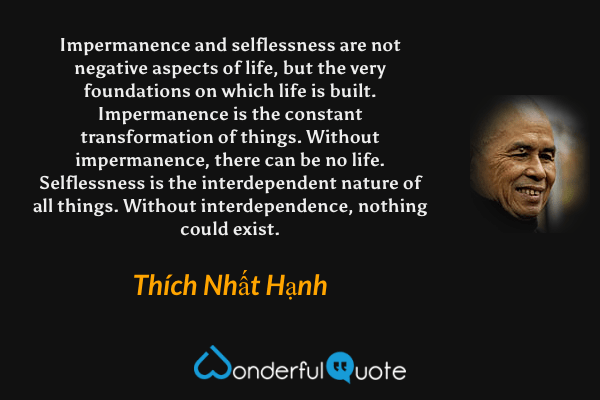
Impermanence and selflessness are not negative aspects of life, but the very foundations on which life is built. Impermanence is the constant transformation of things. Without impermanence, there can be no life. Selflessness is the interdependent nature of all things. Without interdependence, nothing could exist.
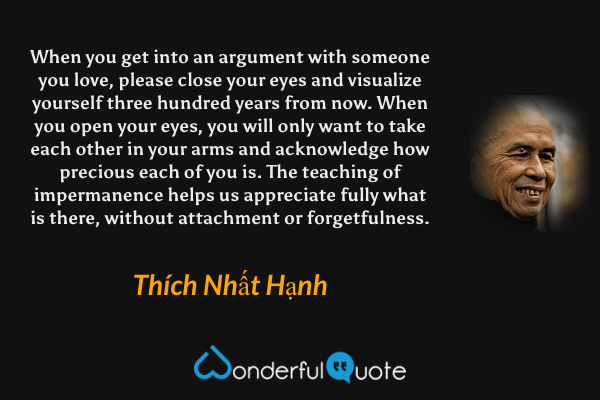
When you get into an argument with someone you love, please close your eyes and visualize yourself three hundred years from now. When you open your eyes, you will only want to take each other in your arms and acknowledge how precious each of you is. The teaching of impermanence helps us appreciate fully what is there, without attachment or forgetfulness.
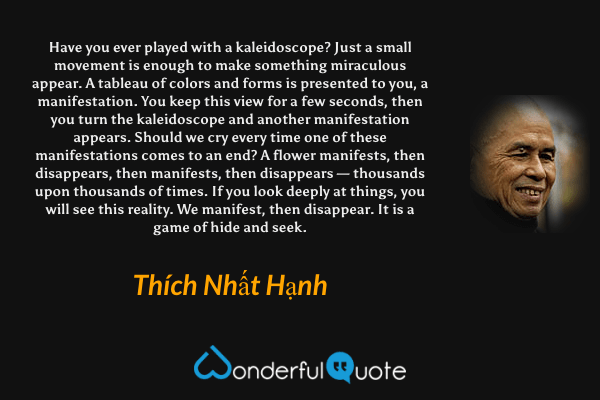
Have you ever played with a kaleidoscope? Just a small movement is enough to make something miraculous appear. A tableau of colors and forms is presented to you, a manifestation. You keep this view for a few seconds, then you turn the kaleidoscope and another manifestation appears. Should we cry every time one of these manifestations comes to an end? A flower manifests, then disappears, then manifests, then disappears — thousands upon thousands of times. If you look deeply at things, you will see this reality. We manifest, then disappear. It is a game of hide and seek.
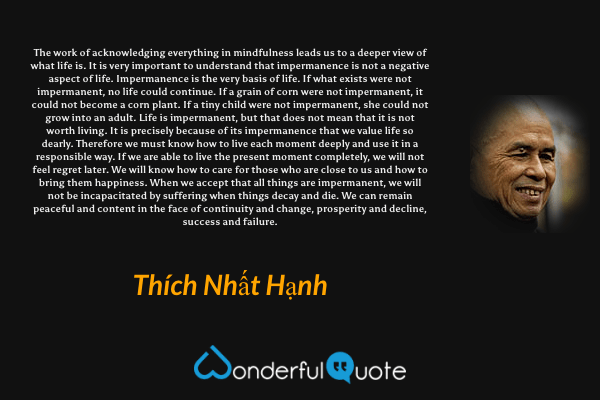
The work of acknowledging everything in mindfulness leads us to a deeper view of what life is. It is very important to understand that impermanence is not a negative aspect of life. Impermanence is the very basis of life. If what exists were not impermanent, no life could continue. If a grain of corn were not impermanent, it could not become a corn plant. If a tiny child were not impermanent, she could not grow into an adult. Life is impermanent, but that does not mean that it is not worth living. It is precisely because of its impermanence that we value life so dearly. Therefore we must know how to live each moment deeply and use it in a responsible way. If we are able to live the present moment completely, we will not feel regret later. We will know how to care for those who are close to us and how to bring them happiness. When we accept that all things are impermanent, we will not be incapacitated by suffering when things decay and die. We can remain peaceful and content in the face of continuity and change, prosperity and decline, success and failure.
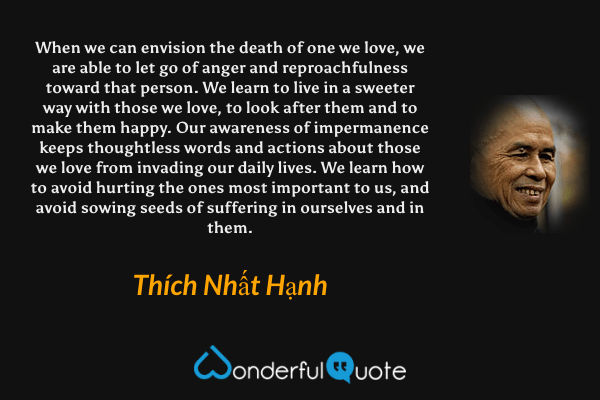
When we can envision the death of one we love, we are able to let go of anger and reproachfulness toward that person. We learn to live in a sweeter way with those we love, to look after them and to make them happy. Our awareness of impermanence keeps thoughtless words and actions about those we love from invading our daily lives. We learn how to avoid hurting the ones most important to us, and avoid sowing seeds of suffering in ourselves and in them.
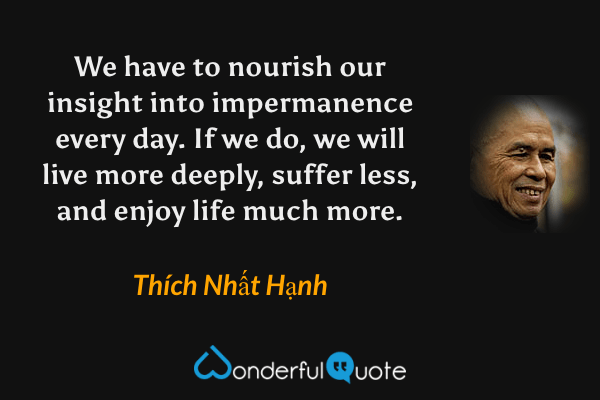
We have to nourish our insight into impermanence every day. If we do, we will live more deeply, suffer less, and enjoy life much more.
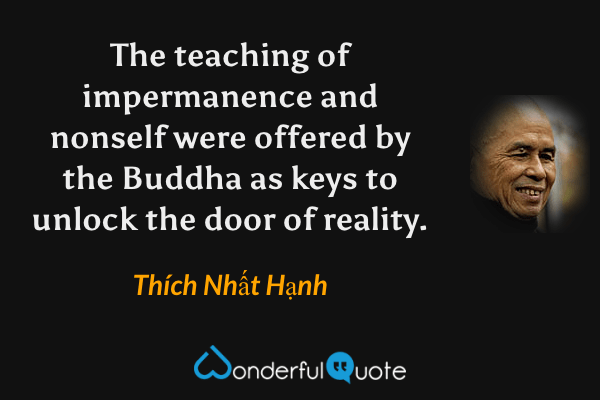
The teaching of impermanence and nonself were offered by the Buddha as keys to unlock the door of reality.

Everything in life is just for a while.
Man suffers because of his craving to possess and keep forever things which are essentially impermanent.


